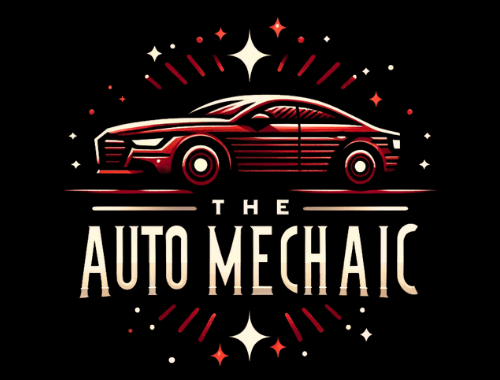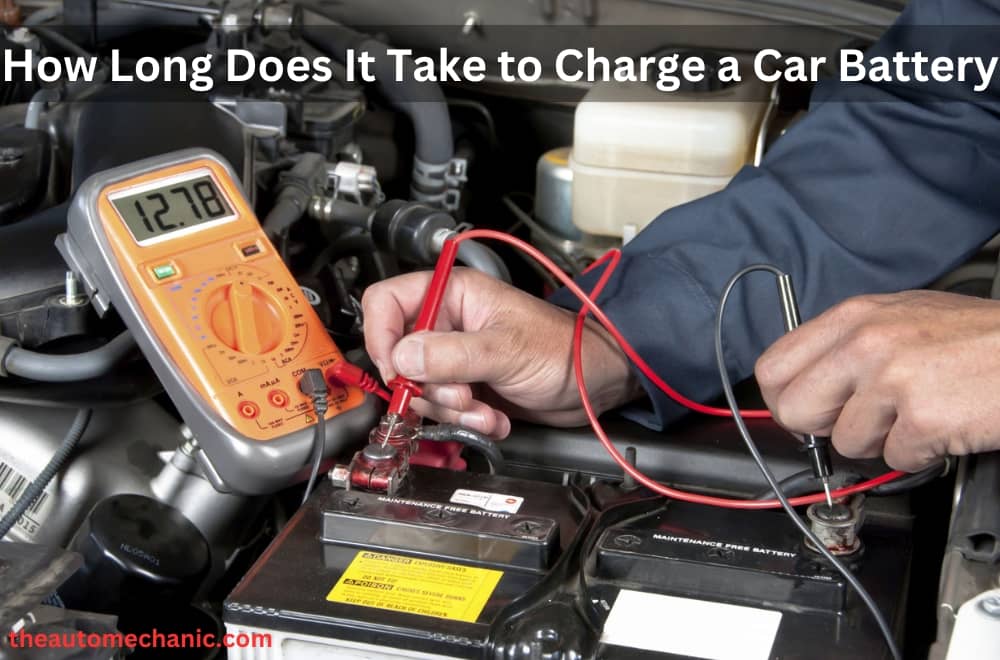In addition to this, cold climates, corrosion, and daily wear and tear can also cause battery failures. In any of these cases, a user has two options: either inject new life into the battery or replace it with a new one. If you are wondering how long it takes to charge a car battery, then the following information would be helpful.
How long does it take to charge a car battery?
Typically, it takes around 12 hours to charge a battery that holds around 48 amps using a 12-volt charger. On the other hand, it would take only 30-35 minutes to charge an electric vehicle up to 80%. However, how long it takes to charge a car battery depends on the type of car battery and charger. There is an array of car batteries and chargers in the market with different amps.
If the charger has a higher amp value, it will charge the car faster than those with lower amps. Similarly, the time taken to charge the car battery depends entirely on the car’s battery size. Generally, batteries with smaller amp values, such as those in small-size cars, take less time to charge. Conversely, it will take more time to charge the batteries installed in bigger cars.
Diverse Types of Chargers Available in the Market
The duration required to charge the car battery usually depends on the charger type. However, there can be considerable differences in the timeline. Likewise, some chargers will take around one hour to charge the car battery, whereas some might take a whole day. Apart from this, it depends on which type of battery your vehicle has and your preferred mode of charging.
Trickle Charger
A trickle charger operates between 0.8 and 4 amperages. Typically, it runs at a lesser power output level and is not suitable for charging a fully dead battery. However, it can be used to prevent the battery from draining out when the vehicle is not in use.
On another note, EFB, or an Enhanced Flooded Battery, is an excellent choice for rapid charging. Besides, it operates at lower voltages for use when the vehicle is not functional or the battery is not completely drained.
Liner Charger
Liner chargers are among the most hassle-free and simple types of chargers. They provide power to the car battery through a wall socket. However, the whole process needs a little power and setup. Further, a linear charger operates at lower amperage, so it takes longer to charge the car battery.
A reliable version of this process is to use the Repco-Branded batteries that run at 2.7 amperes. As a result, it will take around 12 hours to fully charge a 12-volt lead-acid battery that most cars use. However, the liner charges provide continuous charges. They do not have a controller to stop charging when the car’s battery is at its peak.
Negligence can eventually adversely affect the battery’s performance and longevity. Yet, if you do not check the battery levels and charging period, it can cause battery failure.
Multi-Stage Charger
A multi-stage charger is a bit more expensive than a linear charger. Further, the multi-state charging version recharges the car battery in a split form rather than a continuous flow. Unlike linear batteries, a multi-stage charger is suitable for battery cells as it does not damage them during continual charging.
Due to this, multi-stage chargers are also known as intelligent or smart chargers. Yet the credit for this goes to the split-charging functionality along with higher amperes. These chargers comprise a maximum of 50 amperes and can charge the car’s battery within an hour only.
Charging the Car Battery With A Charger of 12-Volt
Besides, the time it takes to charge a 12-volt car battery will vary depending on the amps used for recharging.
Charging With an amps Charger
Charing the car using a battery of 2 amps would take around a day or two to charge fully. In particular, the two-amp battery would deliver 1 ampere in an hour. One uses such amp power during the trickle charging or maintaining the battery’s charge at a particular level.
A battery of 2 amps is suitable if the user leaves the car connected to the charger for a prolonged period. Additionally, it also works well if the user does not drive the car daily.
Charging With a four amps Charger
Generally, a car’s battery can hold 48 amps. As a result, it will take around 12 hours to attain full charge using such a voltage. Therefore, this can help recharge the car’s battery to maintain a specific level for a longer duration.
Charging With a ten amps Charger
A 10 amp charger can charge a partially discharged small car battery within 2 to 3 hours. Small car batteries commonly fall under the category of RC 40-60. A charger can recharge a half-drained medium-sized battery in 3 to 4 hours, which is classified as RC 60-85.
Similarly, it will take 4 to 7 hours to charge a battery of a larger size belonging to the RC 85-190 group. Nevertheless, if the battery is empty, the battery would take double the usual charging time.
Charging With 12 amps Charger
Never use a 12-amp charger with a charging circuit holding multiple devices and outlets at a time. Firstly, ensure that the wiring and circuit breaker are not complex before selecting this version. Ideally, one can receive a charging range of 5 miles per hour using a load of 12 amps.
Charging With 40 amps Charger
A load of 40 amps can charge the car’s battery within a few minutes. However, avoid overcharging, as it can cause severe damage to the battery and hamper its efficiency and lifespan in long-term usage.
Charging the Battery While Driving
Before determining how long it takes to charge a car battery while driving, go through the following factors:
Initial Charge period
In particular, the time it takes your car’s battery to fully charge depends on its last charge. It also varies depending on certain factors such as your car’s make, previous usage, model, and year. Hence, it is recommended that cars maintain up to 1000 revolutions each minute for a specific time duration.
Further, if you drive in higher-speed lanes such as a freeway, flyover, or highway, the battery will be charged in 30 minutes. Driving the car in a slow-moving or busy lane with heavy traffic flow will take an hour or more. However, when charging the car’s battery while driving, one must not use the radio, electronic devices, AC, or light.
Usage Cycle of the Car
One of the pivotal factors that determines the draining intensity of the battery is the vehicle’s usage cycle. If the car remains unused or stationary for a longer period, the battery is more likely to die. Conversely, using the vehicle frequently can reduce the probability of a dead battery. Yet accidentally leaving the car’s light or AC on can cause the battery to drain out quickly.
Moreover, the most feasible and effective way to charge the car’s battery is when the vehicle is idling. If the alternator is functioning correctly and is not defective, you can use this method. In that case, idling can partially self-aid the car in recharging the battery.
However, if it does not work well, take your vehicle for a short drive to recharge its battery. For this, you must use a multi-stage charger to recharge the car’s battery to an optimum level safely.
Conclusion
After assessing the information mentioned above, you will be able to know how long it takes to charge a car battery. Further, if you need to charge your car’s battery immediately, go for a jump starter. Aside from being safe, it is also user-friendly.
Likewise, jump-started cars can run for 10 to 15 minutes; if not done correctly, it can damage the alternator. If the car’s battery is taking longer to charge or is malfunctioning, seek professional assistance to have it repaired.

Bruce William is a professional content writer and vehicle engineer with extensive car maintenance and repair knowledge. His expertise spans all vehicle parts, offering practical solutions for various automotive issues. Bruce provides valuable insights through his website articles to help readers maintain their cars for optimal performance and longevity.

